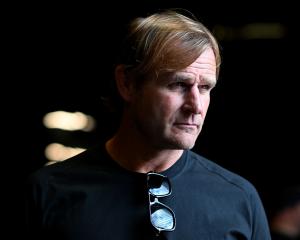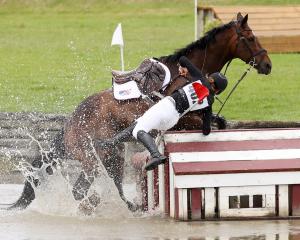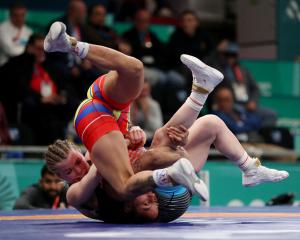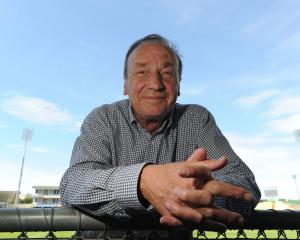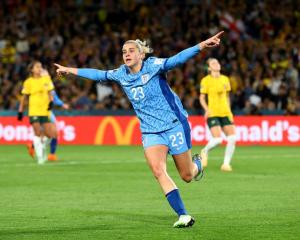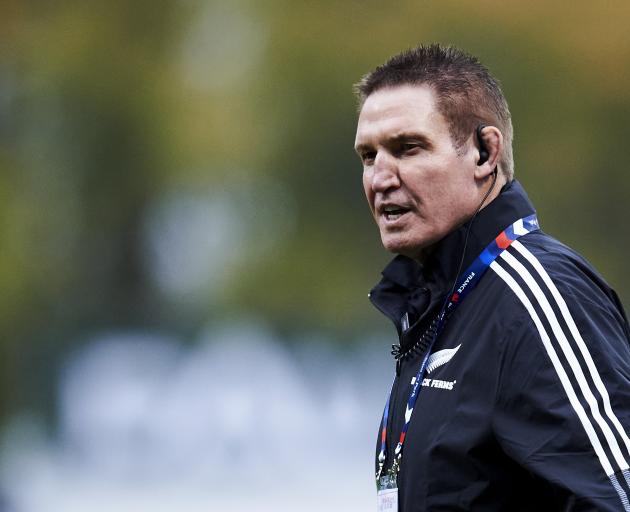
It is the easiest thing in the world to do after a review of a sports team.Sack the bloody coach.
Sack Glenn Moore. The man must go! Ghosting and body shaming and cultural insensitivity and poor communication — not to mention those four straight losses on the hideous European tour — equal a one-way ticket out of here.
No surprise, then, that they have been lining up in all corners to rage about Moore keeping his job after the release of the Black Ferns Cultural & Environment Review, an admirably intensive if regularly nebulous document that highlights some issues with our national women’s rugby team.
But I am going to swim against the tide a little to suggest that what the review DOESN’T include paints a clearer picture of who (or what) is really under the gun here.
It doesn’t highlight Moore’s record — the Black Ferns won 24 out of 27 tests before a 2021 tour that was virtually guaranteed to go badly, won the 2017 World Cup, and became the first women’s team to be named World Rugby team of the year.
It doesn’t have direct evidence and examples of what has been so terribly wrong about Moore and the Black Ferns management other than airy-fairy speech bubbles like "The performance culture needs to set standards for the players and this needs to be reinforced", whatever that means.
It doesn’t really delve into the alleged cultural disconnection between the Pakeha-dominated management and a playing squad that is 75% Maori-Pasifika.
It doesn’t expand on the extraordinary suggestion that weight and skinfold tests are body shaming and not mana-enhancing enough, a sentence I am struggling to write without snorting.
... raises ...
The review includes one mention of "Glenn Moore" and 41 mentions of "cultural", which I think speaks volumes.
A relentless focus in the review on alleged cultural issues has made it very easy for critics to assume Moore is a man out of touch with the modern climate, but that is a shallow assumption.
We are talking about a coach of some 30 years, who has guided teams at club, provincial, Super Rugby and international level, teams which — like all in New Zealand — had a range of cultures.
He did a marvellous job in the transformation of North Otago rugby from white-bread blandness to a glorious mix of Pakeha, Pasifika, Maori and occasionally foreign players, and all the feedback I have had is that he was nothing but fair and adept at making everyone feel part of the family.
The Old Golds link perhaps makes me biased but I think Moore is an exceptional coach. He had a difficult spell at the Highlanders (though he did some good work, and introduced superstars such as Ben Smith and Adam Thomson) but has had success with every other team.
Hard — and they didn’t call him "Growler" for nothing — does not mean you are a bully.
White and male does not mean you are the wrong person to be coaching a team dominated by Maori and Pasifika women.
A review that highlights some issues with a high-performance sports team does not mean the coach has to be the one under the pump.
... some ...
It feels like Moore has been made the scapegoat for a team’s (recent) failings, and it has suited the suits to hang the coach out to dry.
As the Be Kind generation places relentless importance on wellbeing and mental health, where is the concern for how the coach has been treated in recent times?
Is Moore getting the support and backing of his employers?
Because, for me, the most salient line in the review, conveniently missed by many, is this: "New Zealand Rugby structures have not sufficiently supported women’s high performance rugby in New Zealand."
There are two major points to make here.
The first is that, yes, clearly there have been immense and immediate growing pains in trying to elevate the Black Ferns to a genuine "high performance" team.
That is hardly surprising. Men’s rugby had 100 years to evolve; women’s rugby is trying to catch up, very fast. NZR introduced full-time contracts for some Black Ferns LAST YEAR.
I am not suggesting we don’t try — women’s rugby in this country needs much better attention and resources — but perhaps there needs to be some understanding that it won’t happen overnight, and that it needs to be NZR, not just Glenn Moore, responsible for driving the sport forward.
The second point is something everybody seems to be missing.
You can’t build a sport from the top down.
You can’t spout nonsense about Super Rugby Aupiki’s legacy, or expect the Black Ferns to operate like the All Blacks, when there is so much to be done at the base of the pyramid.
I think women’s rugby has an exciting future in this country. But we need to be thinking about what more can be done for girls’ rugby, then club rugby, then provincial rugby. Then watch the real high performance excitement begin.
... interesting
I wonder if this review has also exposed a generational issue.
Coaches can move with the times — and I will be truly staggered if Glenn Moore is the same coach today as he was in Oamaru 20 years ago — but age is age.
What to the coach (and likely to most of us older than 30) appears to be a perfectly reasonable way to deal with an elite athlete might seem, to a generation that isn’t quite as resilient, to be unfair.
One particularly interesting point in the review was the suggestion players needed to contribute to a more effective team culture by learning resilience around things like non-selection.
Again, no surprise this hasn’t happened at the click of a finger. Male rugby players, from Buck Shelford being dropped to any number of talented schoolboys missing out on first XVs, have had generations to learn resilience in this sport.
Female rugby players are not soft — I’d suggest, given the barriers they have faced and the challenges they address, they have plenty of toughness — but they just don’t have the same bank of experience to call upon.
Former Black Ferns prop Regina Sheck made an interesting point when she suggested the review was more about communication than management, and that players needed to take ownership of any disappointments around non-selection.
... questions
I also really liked this bit from New Zealand’s No1 sportswriter, Dylan Cleaver:
"To avoid a repeat of this shambles, there needs to be an adult conversation about what women’s elite sport in New Zealand looks like in what you’d traditionally call male-dominated sports. It needs to go way beyond glib catchphrases like ‘you have to see it to be it’, and when it goes wrong we can’t get bogged down in the blame-the-coach game."
Bingo.
It is such an exciting time for women’s sport, and there are so many positive things that can be done.
A review that wastes too much space on fluffery, and unfairly maligns a good man, is not going to do much good for women’s rugby, for mine.
I say that acknowledging I am a male, if one who has been a passionate advocate for women’s sport for a long time, and that any work done on women’s sport needs to put the women first.

